19+ Human Resource Examples to Download
Welcome to the world of Human Resource management, where an array of tools and resources can empower professionals to streamline processes, foster employee engagement, and drive organizational success. From crafting impactful email signatures to formulating strategic frameworks, managing budgets, conducting terminations, and ensuring confidentiality agreements, this article presents a comprehensive collection of 19+ Human Resource examples. Whether you prefer Google Docs, Word, Apple Pages, or PDF formats, this guide will equip you with the necessary resources to navigate the multifaceted landscape of HR management effectively.
Human Resources Functional Resume
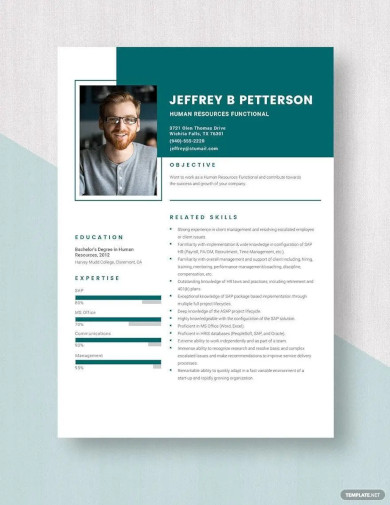
Human Resource Change Management Plan Template
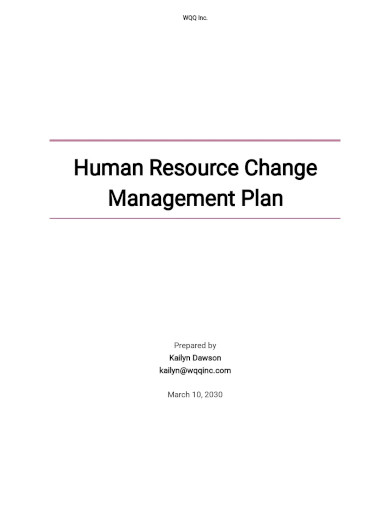
Human Resource Management Certificate Template
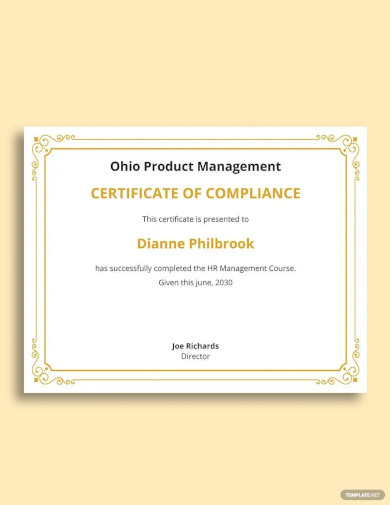
Human Resource Planning Template
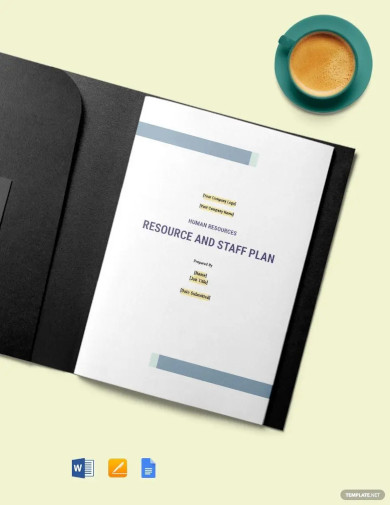
Human Resources Policy
Human Resources Management and Training
Human Resources for Health
Human Resources and Materials Management
Human Resources Risk Manager
Human Resources Resume Keyword
Human Resources in Higher Education
Human Resources Manual
Human Resources Developer
Human Resources And Office Manager
Human Resources Report
Human Resources Management System
Human Resources Annual Report
Human Resources Action Plan
Division of Human Resources
Human Resources Accounting
What is Human Resources?
Human Resources, commonly known as HR, encompasses the critical function within organizations that cultivates the relationship between employees and the company. HR professionals are entrusted with a wide range of responsibilities, including recruitment, onboarding, training, performance management, compensation and benefits, employee relations, and compliance with employment laws. By leveraging these resources effectively, HR plays a pivotal role in creating a positive work environment, attracting top talent, and driving organizational growth.
How to Become an Effective Human Resources Manager
Becoming an effective Human Resources Manager requires a combination of knowledge, skills, and experience. This step-by-step guide aims to provide you with valuable insights and actionable advice on how to excel in this vital role, enabling you to make a significant impact within your organization and contribute to its growth and success.
Step 1: Acquire a Strong Foundation
To excel as an HR manager, start by gaining a solid understanding of the field. Engage in formal education, pursue relevant certifications, or participate in professional development programs to expand your knowledge base. Familiarize yourself with HR best practices, laws, and regulations that govern the industry.
Step 2: Develop Exceptional Communication Skills
Effective communication is the cornerstone of successful HR management. Hone your interpersonal and written communication skills to connect with employees, convey policies and procedures clearly, and address sensitive issues with empathy and professionalism. Check out our article on 4+ Human Resource Email Signature Designs & Examples for inspiration on crafting impactful email signatures.
Step 3: Master Strategic Thinking
HR professionals must align their efforts with the organization’s goals and objectives. Develop strategic thinking skills to identify HR strategies that align with the company’s vision. Explore our article featuring “17+ Human Resource Strategy Examples” to gain insights into creating effective HR strategies.
Step 4: Become a Budgeting Expert
Managing HR budgets is essential for optimal resource allocation. Learn how to create and monitor budgets to ensure efficient utilization of funds. Discover insights on budget management by exploring “12+ Human Resource Budget Examples & Samples.”
Step 5: Navigate Employee Terminations with Care
Terminating employees is a delicate process that requires adherence to legal requirements and fair practices. Stay informed about termination procedures and utilize “10+ Employee Termination Checklist Examples” to ensure a smooth and respectful process.
Step 6: Safeguard Confidentiality
Protecting sensitive information is vital within the HR department. Familiarize yourself with HR confidentiality agreements and explore our article featuring “7+ HR Confidentiality Agreement Examples” for guidance on creating comprehensive agreements.
Step 7: Conduct Effective Job Interviews
Mastering the art of job interviews ensures that the right candidates are selected for organizational success. Utilize “3+ Job Interview Assessment Examples in PDF” to craft structured assessments that evaluate candidate suitability.
Step 8: Implement Performance Evaluation Processes
Effective performance evaluations facilitate growth and development within the workforce. Gain insights from “10+ HR Evaluation Form Examples” to design evaluation forms that provide valuable feedback and identify areas for improvement.
Step 9: Capture Performance in Reports
Conveying performance evaluations through comprehensive reports aids in decision-making and future planning. Explore “10+ Performance Evaluation Report Examples” for inspiration on creating impactful performance reports.
Step 10: Document Incidents and Issues
Accurate record-keeping of HR incidents and issues is crucial for compliance and mitigating risks. Download “7+ HR Incident Report Examples in PDF” to assist in documenting incidents effectively.
Step 11: Track Employee Progress
Maintaining employee records and tracking their progress is essential for performance management. Discover “10+ Employee Tracking Examples” to streamline employee tracking processes and enhance HR efficiency.
FAQs
What are the key elements to include in an HR Confidentiality Agreement?
An HR Confidentiality Agreement is a critical document that ensures the protection of sensitive information within the HR department. Key elements to include in such an agreement are:
- Definition of confidential information
- Scope of permitted use and disclosure
- Obligations of the parties involved
- Duration and termination provisions
- Consequences of breach
To further explore this topic, you can refer to our article on “7+ HR Confidentiality Agreement Examples.”
What are the essential components of a Job Interview Assessment?
A Job Interview Assessment is designed to evaluate candidates’ suitability for a particular position. Essential components of this assessment include:
- Criteria and rating scales
- Interview questions tailored to the role
- Objective evaluation of candidate responses
- Clear documentation of strengths and weaknesses
For more detailed information and examples, we recommend checking out our article on “3+ Job Interview Assessment Examples in PDF.”
How can HR Evaluation Forms benefit organizations?
HR Evaluation Forms serve as valuable tools for assessing employee performance and identifying areas for improvement. By implementing these forms, organizations can:
- Provide structured feedback to employees
- Facilitate goal setting and performance planning
- Support fair and objective performance evaluations
- Identify training and development needsFor a deeper understanding of HR Evaluation Forms, you can explore our article featuring “10+ HR Evaluation Form Examples.”
As an HR professional, you hold the key to unlocking the potential of human resource management within your organization. By leveraging the diverse range of resources mentioned in this article, from email signature designs to employee tracking systems, you can streamline HR processes, drive employee engagement, and foster a thriving work environment. Embrace the power of these 19+ Human Resource examples, available in Google Docs, Word, Apple Pages, and PDF formats, and embark on a journey towards enhanced efficiency, success, and organizational excellence. Remember, with the right tools at your disposal, your HR endeavors are poised for greatness.
19+ Human Resource Examples to Download
Welcome to the world of Human Resource management, where an array of tools and resources can empower professionals to streamline processes, foster employee engagement, and drive organizational success. From crafting impactful email signatures to formulating strategic frameworks, managing budgets, conducting terminations, and ensuring confidentiality agreements, this article presents a comprehensive collection of 19+ Human Resource examples. Whether you prefer Google Docs, Word, Apple Pages, or PDF formats, this guide will equip you with the necessary resources to navigate the multifaceted landscape of HR management effectively.
Human Resources Functional Resume

Details
File Format
Word
Apple Pages
Human Resource Change Management Plan Template

Details
File Format
Google Docs
Word
Apple Pages
PDF
Human Resource Management Certificate Template

Details
File Format
Word
Google Docs
Apple Pages
Publisher
Human Resource Planning Template

Details
File Format
Google Docs
Word
Apple Pages
Human Resources Policy
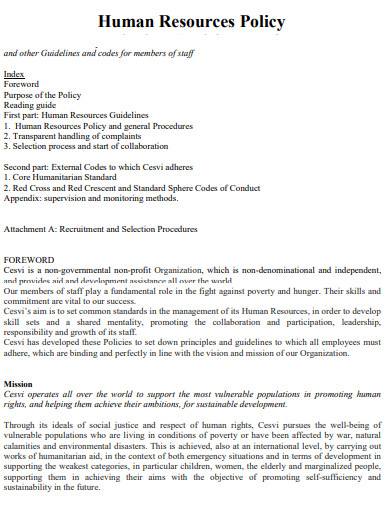
cesvi.eu
Details
File Format
PDF
Size: 522 KB
Human Resources Management and Training
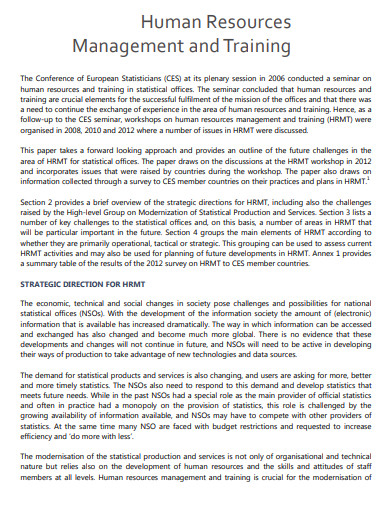
unece.org
Details
File Format
PDF
Size: 4 MB
Human Resources for Health
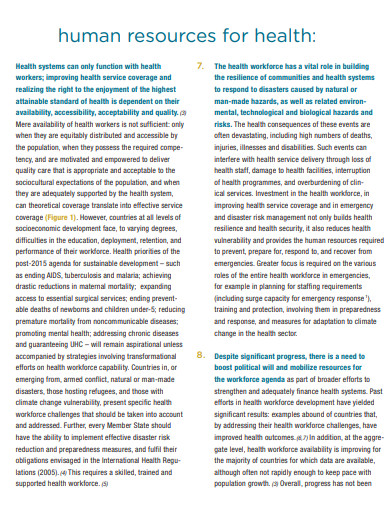
apps.who.int
Details
File Format
PDF
Size: 2 MB
Human Resources and Materials Management
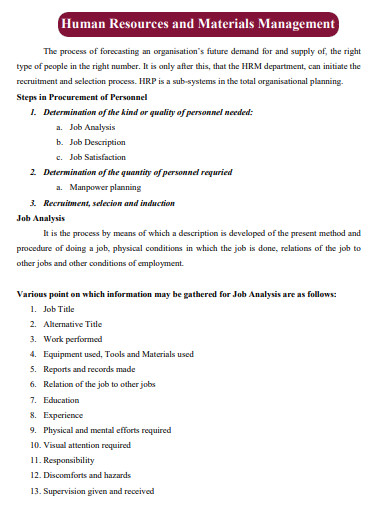
sist.sathyabama.ac.in
Details
File Format
PDF
Size: 2 MB
Human Resources Risk Manager
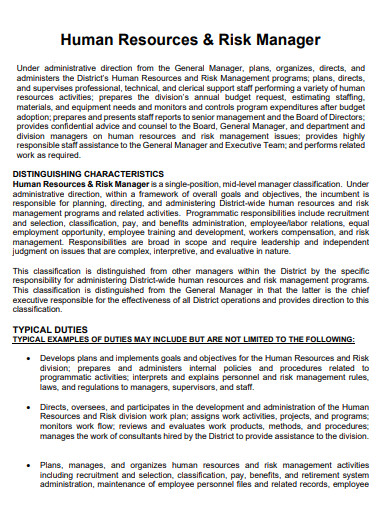
acwd.org
Details
File Format
PDF
Size: 188 KB
Human Resources Resume Keyword
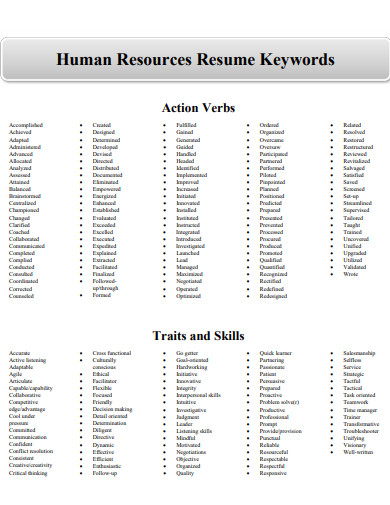
wmich.edu
Details
File Format
PDF
Size: 64 KB
Human Resources in Higher Education
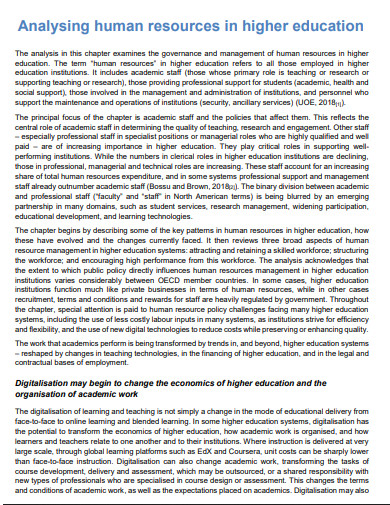
oecd-ilibrary.org
Details
File Format
PDF
Size: 1003 KB
Human Resources Manual
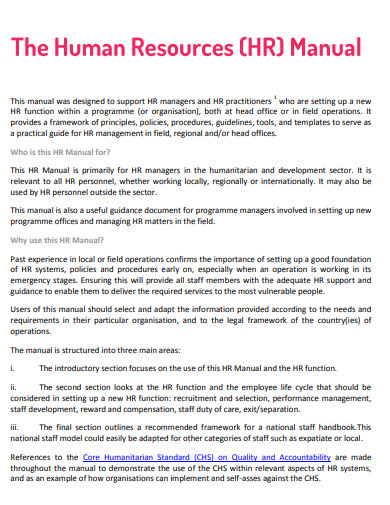
d1h79zlghft2zs.cloudfront.net
Details
File Format
PDF
Size: 3 MB
Human Resources Developer
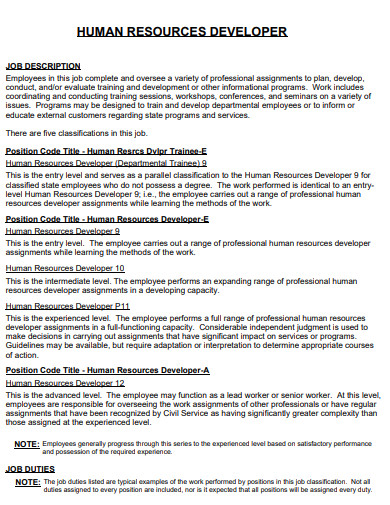
michigan.gov
Details
File Format
PDF
Size: 8 KB
Human Resources And Office Manager
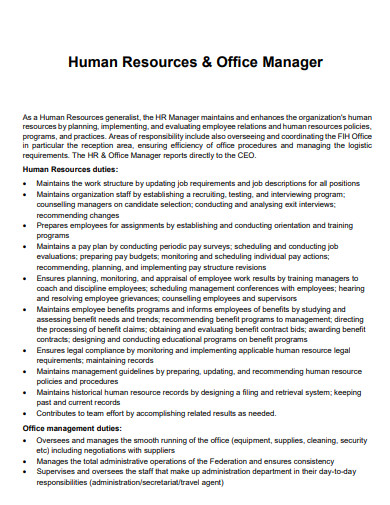
fih.ch
Details
File Format
PDF
Size: 233 KB
Human Resources Report
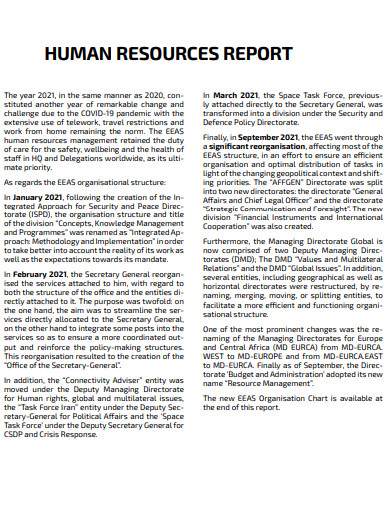
eeas.europa.eu
Details
File Format
PDF
Size: 2 MB
Human Resources Management System
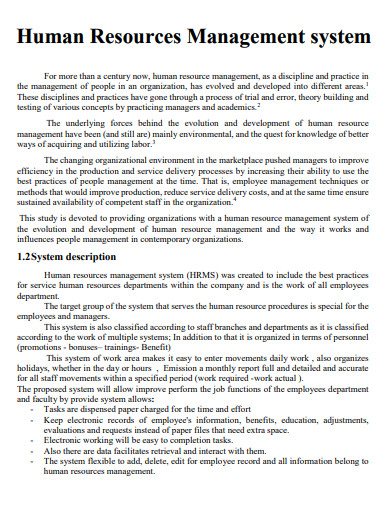
m.mu.edu.sa
Details
File Format
PDF
Size: 2 MB
Human Resources Annual Report
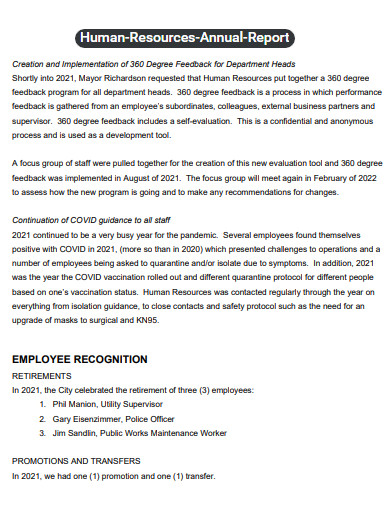
fitchburgwi.gov
Details
File Format
PDF
Size: 826 KB
Human Resources Action Plan
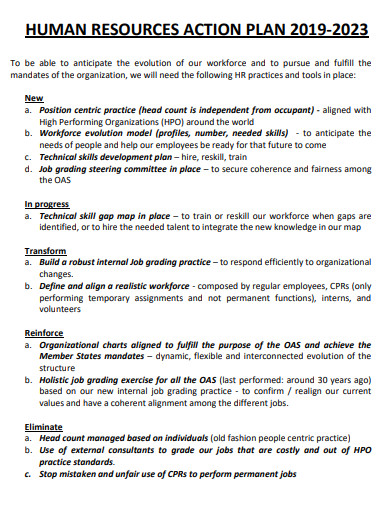
scm.oas.org
Details
File Format
PDF
Size: 598 KB
Division of Human Resources
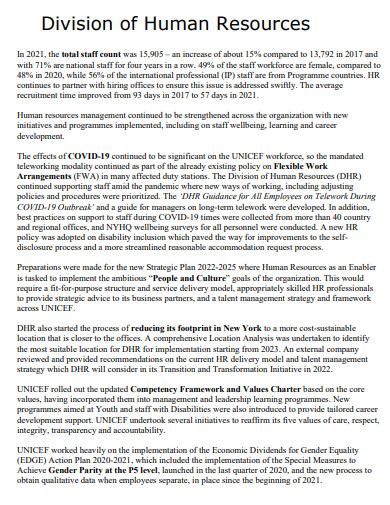
unicef.org
Details
File Format
PDF
Size: 262 KB
Human Resources Accounting
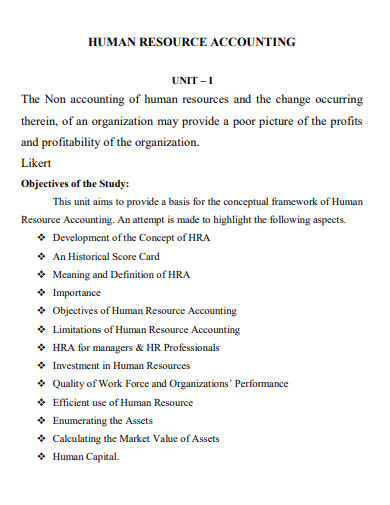
backup.pondiuni.edu.in
Details
File Format
PDF
Size: 909 KB
What is Human Resources?
Human Resources, commonly known as HR, encompasses the critical function within organizations that cultivates the relationship between employees and the company. HR professionals are entrusted with a wide range of responsibilities, including recruitment, onboarding, training, performance management, compensation and benefits, employee relations, and compliance with employment laws. By leveraging these resources effectively, HR plays a pivotal role in creating a positive work environment, attracting top talent, and driving organizational growth.
How to Become an Effective Human Resources Manager
Becoming an effective Human Resources Manager requires a combination of knowledge, skills, and experience. This step-by-step guide aims to provide you with valuable insights and actionable advice on how to excel in this vital role, enabling you to make a significant impact within your organization and contribute to its growth and success.
Step 1: Acquire a Strong Foundation
To excel as an HR manager, start by gaining a solid understanding of the field. Engage in formal education, pursue relevant certifications, or participate in professional development programs to expand your knowledge base. Familiarize yourself with HR best practices, laws, and regulations that govern the industry.
Step 2: Develop Exceptional Communication Skills
Effective communication is the cornerstone of successful HR management. Hone your interpersonal and written communication skills to connect with employees, convey policies and procedures clearly, and address sensitive issues with empathy and professionalism. Check out our article on 4+ Human Resource Email Signature Designs & Examples for inspiration on crafting impactful email signatures.
Step 3: Master Strategic Thinking
HR professionals must align their efforts with the organization’s goals and objectives. Develop strategic thinking skills to identify HR strategies that align with the company’s vision. Explore our article featuring “17+ Human Resource Strategy Examples” to gain insights into creating effective HR strategies.
Step 4: Become a Budgeting Expert
Managing HR budgets is essential for optimal resource allocation. Learn how to create and monitor budgets to ensure efficient utilization of funds. Discover insights on budget management by exploring “12+ Human Resource Budget Examples & Samples.”
Step 5: Navigate Employee Terminations with Care
Terminating employees is a delicate process that requires adherence to legal requirements and fair practices. Stay informed about termination procedures and utilize “10+ Employee Termination Checklist Examples” to ensure a smooth and respectful process.
Step 6: Safeguard Confidentiality
Protecting sensitive information is vital within the HR department. Familiarize yourself with HR confidentiality agreements and explore our article featuring “7+ HR Confidentiality Agreement Examples” for guidance on creating comprehensive agreements.
Step 7: Conduct Effective Job Interviews
Mastering the art of job interviews ensures that the right candidates are selected for organizational success. Utilize “3+ Job Interview Assessment Examples in PDF” to craft structured assessments that evaluate candidate suitability.
Step 8: Implement Performance Evaluation Processes
Effective performance evaluations facilitate growth and development within the workforce. Gain insights from “10+ HR Evaluation Form Examples” to design evaluation forms that provide valuable feedback and identify areas for improvement.
Step 9: Capture Performance in Reports
Conveying performance evaluations through comprehensive reports aids in decision-making and future planning. Explore “10+ Performance Evaluation Report Examples” for inspiration on creating impactful performance reports.
Step 10: Document Incidents and Issues
Accurate record-keeping of HR incidents and issues is crucial for compliance and mitigating risks. Download “7+ HR Incident Report Examples in PDF” to assist in documenting incidents effectively.
Step 11: Track Employee Progress
Maintaining employee records and tracking their progress is essential for performance management. Discover “10+ Employee Tracking Examples” to streamline employee tracking processes and enhance HR efficiency.
FAQs
What are the key elements to include in an HR Confidentiality Agreement?
An HR Confidentiality Agreement is a critical document that ensures the protection of sensitive information within the HR department. Key elements to include in such an agreement are:
Definition of confidential information
Scope of permitted use and disclosure
Obligations of the parties involved
Duration and termination provisions
Consequences of breach
To further explore this topic, you can refer to our article on “7+ HR Confidentiality Agreement Examples.”
What are the essential components of a Job Interview Assessment?
A Job Interview Assessment is designed to evaluate candidates’ suitability for a particular position. Essential components of this assessment include:
Criteria and rating scales
Interview questions tailored to the role
Objective evaluation of candidate responses
Clear documentation of strengths and weaknesses
For more detailed information and examples, we recommend checking out our article on “3+ Job Interview Assessment Examples in PDF.”
How can HR Evaluation Forms benefit organizations?
HR Evaluation Forms serve as valuable tools for assessing employee performance and identifying areas for improvement. By implementing these forms, organizations can:
Provide structured feedback to employees
Facilitate goal setting and performance planning
Support fair and objective performance evaluations
Identify training and development needsFor a deeper understanding of HR Evaluation Forms, you can explore our article featuring “10+ HR Evaluation Form Examples.”
As an HR professional, you hold the key to unlocking the potential of human resource management within your organization. By leveraging the diverse range of resources mentioned in this article, from email signature designs to employee tracking systems, you can streamline HR processes, drive employee engagement, and foster a thriving work environment. Embrace the power of these 19+ Human Resource examples, available in Google Docs, Word, Apple Pages, and PDF formats, and embark on a journey towards enhanced efficiency, success, and organizational excellence. Remember, with the right tools at your disposal, your HR endeavors are poised for greatness.

